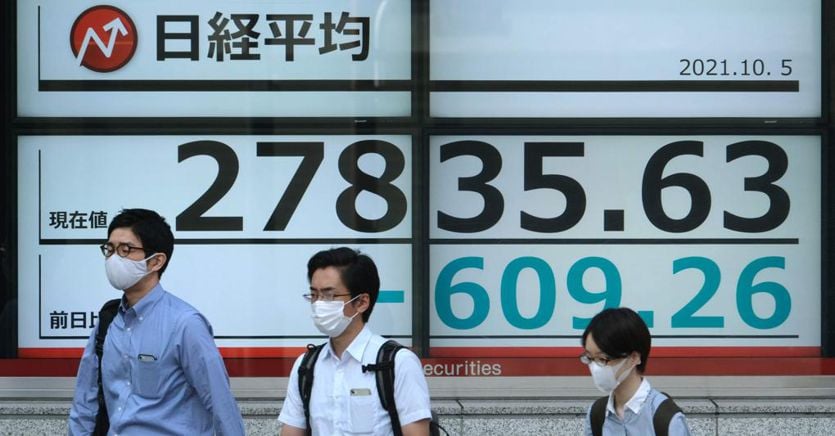European stock exchanges in sharp decline on fears that the flare-up in energy prices will draw an economic scenario with high inflation and contained growth, while fueling in Asia (where the lists are in sharp decline: HANG SENG; Shanghai) concerns about the fate of real estate giants such as Evergrande, which seems to have missed the third payment deadline to bondholders within a few weeks, and with other real estate groups such as Fantasia Holdings and Sinic under pressure for their financial conditions. But in China, risk aversion is also fueled by rumors, reported by the Wall Street Journal, that Beijing is preparing a new regulatory tightening on companies and targeted relations between banking institutions and large private groups.
The FTSE MIBof Piazza Affari is among the most penalized together with Madrid (IBEX 35) ed Amsterdam(AEX). Investors expect the Zew index on the German economic outlook to record its fifth consecutive decline, while at the general level, US inflation data for September and the minutes of the last meeting of the FOMC of the Federal Reserve are expected on Wednesday 13 October. On Wednesday 13 October the US quarterly season starts with the accounts of JpMorgan.
In Piazza Affari, Moncler and the industrialists are down
In Milan Moncler worries about the Chinese economy suffers, while the industrialists StMicroelectronics, Interpump and Cnh Industrial have fallen by more than one percentage point. Among the banks down Banco Bpm e Banca Pop Er, the latter at the center of rumors about a possible combination with Pop Sondr BenchI. It yields Atlantia which announced the 300 million euro contract for Abertis relating to a maxi tunnel in Chile.
Tokyo Stock Exchange, closed at -1% with a drop in tech
Sitting in red for the Tokyo Stock Exchange (NIKKEI 225). Concerns about the jump in energy prices and the reawakening of inflation expectations are the main source of concern for investors. The session started badly in the wake of the negative performance of Wall Street which always has a great impact on the session of the Japanese market. According to operators, the rise in energy prices exacerbates the concern that the acceleration in inflation recorded following the pandemic is not temporary but lasting. The downward trend was driven by stocks in the technology sector and the weakening of the yen against the dollar on the foreign exchange market to 113.47 yen per greenback (from 113, 31 yen Monday evening), a movement that by definition favors the large listed Japanese conglomerates.
Oil slows, euro stable below 1.16 dollars
They slow down from the peaks of the beginning of week i oil prices even if the WTI, in the November delivery, remains above 80 dollars a barrel and the Brent in London in the December delivery always has 84 dollars in its sights. The change euro-dollar it remained stable below 1.16, with the greenback always tonic awaiting indications from the US Federal Reserve on the withdrawal of monetary stimuli.
–


